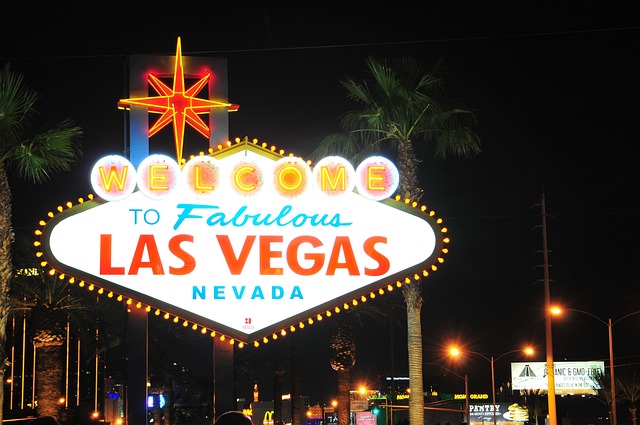-
Die Rolle der Statistik in Sportwetten: Wie können Daten Ihre Wettentscheidungen beeinflussen?

Sportwetten sind eine der aufregendsten Möglichkeiten, das eigene Wissen und die Leidenschaft für Sport in Gewinne umzuwandeln. Doch in einer Welt, in der die Konkurrenz ständig wächst und die Buchmacher immer professioneller werden, ist es wichtiger denn je, sich einen Vorteil zu verschaffen. Hier kommt die Statistik ins Spiel, denn es ist nicht so einfach…
-
Mit Diesen Tollen Tipps Erhöhen Sie Ihre Chancen Bei Wetten Auf Motorsport

Auch den Menschen, die sich kaum mit Auto– oder Motorradrennen auskennen, soll Formel 1 bekannt sein. Und Michael Schumacher ist für viele eine Autorennsport-Legende. Und auch auf diese faszinierende und spektakuläre Sportart kann man Wetten bei 20 Bet und vielen andere modernen deutschen und internationale Online-Buchmachern abschließen. In diesem Beitrag gehen wir auf einige Tipps…
-
Die Geschichte von Roulette

Es ist sehr fraglich, etwas Spezifisches über die Linie des Roulette oder ihre Geschichte zu sagen. Historiker haben die Annahme, dass sich dieses zufällige Spiel ungefähr zur gleichen Zeit wie die Erfindung des Rades entwickelt hat. Die Theorie weist darauf hin, dass Roulette ursprünglich aus China stammt und inzwischen nach Europa der traditionellen Gewürzhandelsbeziehungen gekommen…
-
Casino-Mode im Spiegel von Ocean’s Thirteen

Casinos und Filme haben etwas Gemeinsames. Beide sind Orte der Unterhaltung, wo Stil und Eleganz großgeschrieben werden. Der Film Ocean’s Thirteen ist ein perfektes Beispiel dafür. In diesem Artikel werfen wir einen Blick auf die Mode, die in diesen Medien Stück gezeigt wird. Wir untersuchen, wie diese Styles das Publikum beeinflusst haben. Wenn du selbst…
-
Live Roulette

Das eingängige Rad des Roulette hat seit langem viele Spieler auf der ganzen Welt eingebracht, wenn sie in die physischen Casinos eingetreten sind. Nachdem das Spiel in die digitale Welt eingeführt worden war, haben sich viele Spieler entschieden, das beliebte Casino -Spiel online zu spielen. Sie werden sogar feststellen, dass die meisten Online -Casinos den…
-
Die aufregendsten Casino-Spiele für Anfänger

Casino-Spiele bieten eine faszinierende Kombination aus Spannung, Unterhaltung und der Möglichkeit, groß im National Casino zu gewinnen. Sie können besonders für Anfänger attraktiv sein, die in die Welt des Glücksspiels eintauchen wollen. In diesem Artikel stellen wir einige der aufregendsten und einfach zu lernenden Casino-Spiele vor, die ideal für Neulinge sind. Spielautomaten Eines der zugänglichsten…
-
Roulette Tipps & Tricks

Statistisch gesehen wird das Roulette immer längerfristig gewinnen, aber einige Roulette -Tipps und -Trips können den Vorteil abrufen. Wenn Sie verschiedene Roulette -Tricks verwenden, können Sie einfaches Geld verdienen, indem Sie auf dem Roulette spielen. Auf dieser Seite erfahren Sie, wie Sie mehr pro Stunde mit einer Vielzahl von Roulette -Tipps verdienen und sehen, wie…
-
So Erhöht Man Seine Erfolgschancen Beim Blackjack

Sie werden wohl kein landbasiertes oder virtuelles Casino auf der Welt finden, das Blackjack nicht in seinem Angebot hat. Und die führenden Casinos einschließlich Bizzo Casino sind noch einen Schritt weitergegangen und bieten den Zockern mehrere Varianten dieses klassischen Glücksspiels. Obwohl das Grundprinzip von Blackjack recht einfach ist, weiß nicht jeder, wie man beim Blackjack…
-
Psychologie im Tenniswetten: Erhaltung des Fokus und RO

Während bei Sportwetten Zahlen, Gewinnchancen und Strategien betrifft, spielt die Psychologie auch eine entscheidende Rolle für Ihren Erfolg als Sportsport. Tenniswetten erfordert nicht nur die Kenntnis des Spiels, sondern auch die Fähigkeit, mit Emotionen umzugehen und einen ruhigen und fokussierten Ansatz aufrechtzuerhalten. Hier sind einige psychologische Aspekte zu berücksichtigen, wenn Sie sich mit Tenniswetten befassen.…
-
Chris Moneymakers unglaublicher Online-Triumph

Es war das Jahr 2003, als ein unbekannter Buchhalter aus Tennessee die Pokerwelt auf den Kopf stellte. Chris Moneymaker, dessen Nachname wie ein Vorzeichen seines zukünftigen Erfolgs klingt, verwandelte einen Einsatz von 86$ in einen kolossalen Jackpot von 2,5$. Wie hat er das gemacht? Durch den Gewinn des Main Events der World Series of Poker…
